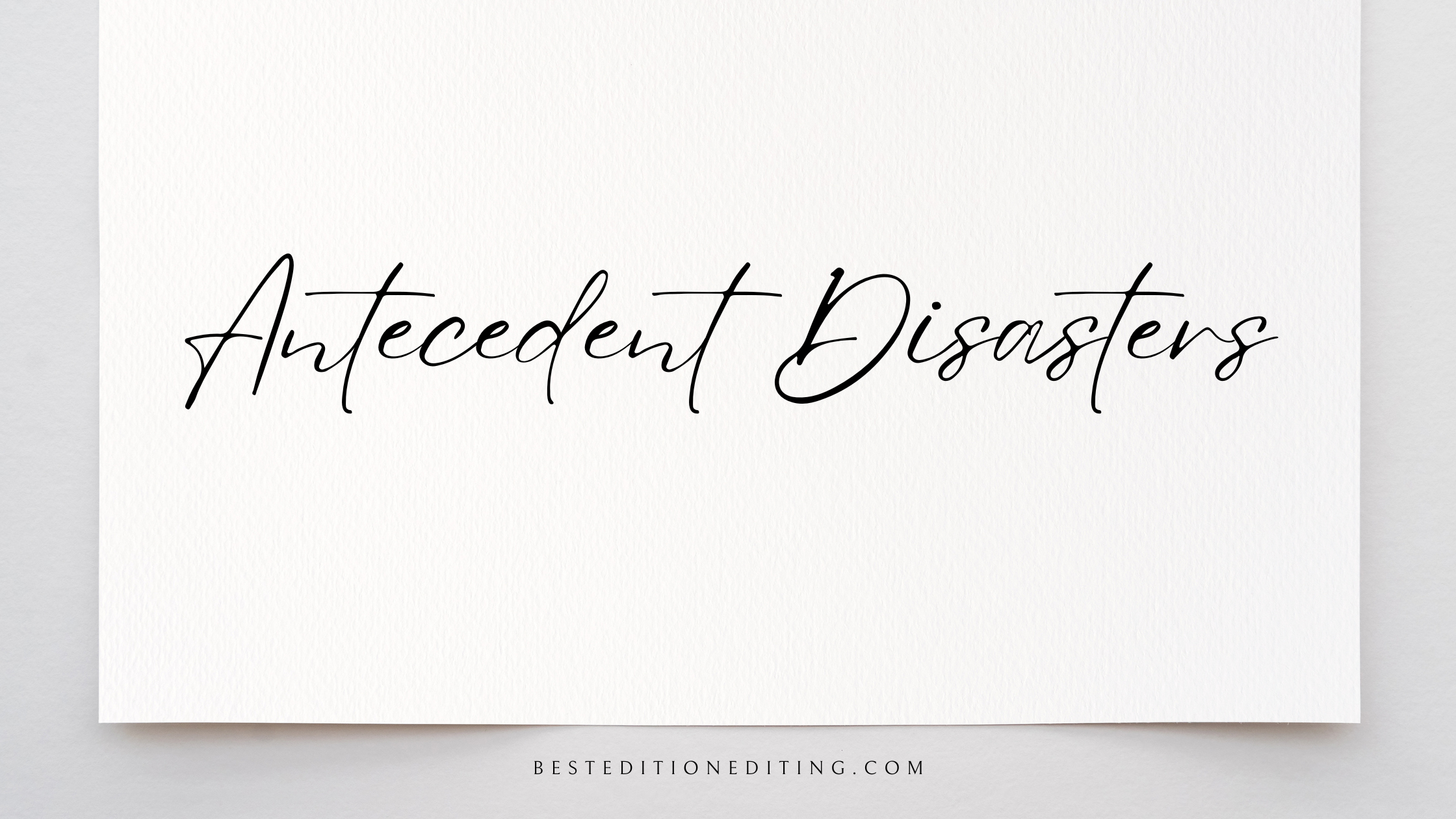Antecedents are one of those little things that people don’t realize are important. In fact, a lot of people don’t even know what antecedents are. For most of us, it seems natural to shove a pronoun into a phrase without thinking about the repercussions. When antecedents become unclear, however, our sentences soon become little puzzles that our struggling audience feels the need to decode.
What is an Unclear Antecedent?
In order to answer the question of what an unclear antecedent is, I must first define an antecedent. As a way to illustrate this, I’ve created two sample sentences: “Alice slept in today. She is going to be late.” In the first sentence, the word “Alice” is the antecedent. Why? Alice is who the “she” is referring to. Essentially, that is what an antecedent is: It’s the noun that the following pronouns are referring to.
However, this becomes an issue when audiences struggle to find the antecedent. All of a sudden, they begin to wonder who, exactly, the pronoun is referring to. For example, what would happen if we added another noun to the above example? It would read something like this: “Alice slept in today, and Charlotte tried to wake her. She was going to be late for work.” In such instances, audiences are left wondering, “Which she?”
Why It Matters
How many of us have been happily reading a book or a passage of text when we have suddenly gotten confused? How often have we had to reread sentences because we’re not entirely sure what they’re referring to? This is called cognitive strain, which writers should avoid putting their audience through. Unclear antecedents are a huge culprit to causing this particular issue.
Unclear Antecedents in My Work
To solidify this point a little more, I’m going to give some real-world examples. First, let’s examine an issue found in the rough draft of my novel.
“Come on, Evelyn, let the girl have a cinnamon roll,” my father said as he entered the room. I looked at him and smiled. In reply, she sheepishly grinned, but when my mother turned her head to him and glared, he backed down.
Do you see the issue here? It’s the sentence that starts with, “In reply, she sheepishly grinned.” Because the antecedent is unclear, audiences are left scratching their heads. The mother hasn’t done any actions in previous sentences, and another girl is also in the room (my main character’s sister). So, who’s “she,” and what’s she responding to?
This particular instance was a major goof on my part. The “she” was supposed to be a “he.” However, if I wanted the mother to be the one grinning, I would’ve had to say, “In response to this interaction, my mother grinned sheepishly.” Then, the antecedent would have become clear.
Unclear Antecedents in the Wild
Unfortunately, unclear antecedents are a relatively common issue. To the author, they aren’t always immediately noticeable, though. Take, for example, this short paragraph from a Reddit post:
Are you seeing what I’m seeing here? Do you have a moment around the fourth sentence where you have to turn back and reread the passage? I do. I stumble upon it during this sentence: “He’s never been creepy or weird in my opinion.” The issue? There are two separate nouns before this sentence. So, which one has “never been creepy or weird”?
The audience is left confused. They’re forced into cognitive strain. As writers, we should all be avoiding this particular reaction.
How to Spot Your Own Unclear Antecedents
Now that you understand unclear antecedents, you may be wondering, “How do I spot my own?” My answer to this is very simple: Read your work out loud. I know, I know. That sounds awful, right? Believe me, though, it helps. When you hear the cadence of your own words, it’s a lot easier to tell when too many nouns are creating an unclear antecedent. So, go out there and squash anything unclear in your work. Your readers will thank you for it.









View comments
+ Leave a comment